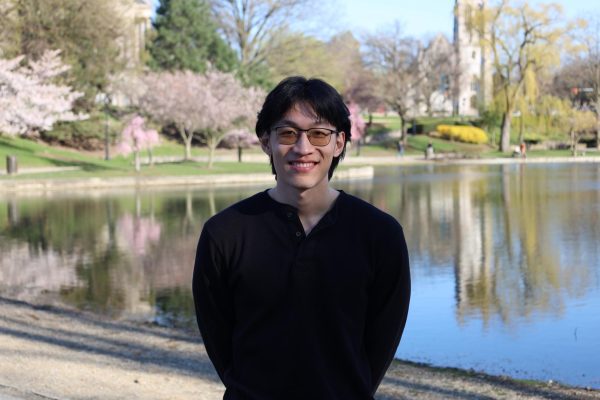What do you want to do after you graduate?
Every student has to face this question at some point before graduation. For some, the answer is obvious: They have a dream career in sight, and maybe even a clear picture of the steps they need to take to reach it. For others, the answer is not so clear. From lacking a personal vision of their proverbial “dream job” to feeling burnt out from years of academic work to questioning their passion for their major, many students find this question difficult to answer.
In an effort to avoid addressing it, students can be tempted to forge ahead with career paths they dislike or extend their time in academia by enrolling in higher degree programs. While these options work well for some people, students often shy away from the seemingly risky alternative of taking a gap year; however, with the multitude of benefits that a break can offer and the number of ways to approach it, students should be encouraged to consider taking a gap year.
Graduating students in the U.S. often feel pressure to get ahead and secure a good career fast. Fresh memories of the chaos that the COVID-19 pandemic imparted on the job market only add to the stress. This attitude is reflected in surveys published by the career search platform Handshake, which found that economic news has driven the class of 2023 to feel “anxious,” “worried” and “stressed” to the extent that they plan to apply to jobs sooner than they originally intended. In another Handshake survey, 85% of Generation Z job seekers reported stability to be a high priority in their job search. It’s no surprise that among a cohort of students longing for certainty, the idea of stepping back from the grind is intimidating.
But diverging from the conventional path by taking a gap year is not automatically a waste of time and money. It can be an invaluable opportunity to identify personal values and aspirations before committing to the financial and time demands of the next educational or career endeavor.
Studies on high school graduates who took a gap year before college show that the gap helps many students gain clarity regarding their career or major selection. Other reported benefits include improved motivation and academic performance following the break. Furthermore, the Gap Year Association, a federally-recognized Standards Development Organization for gap year programs in the U.S., collected surveys revealing that students who take a gap year before college are more likely to graduate in four years or less when compared to the national average.
Gap years aren’t just for high school graduates. They are also fairly common among aspiring physicians; according to the recent national survey by the Association of American Medical Colleges, 44.1% of enrolled medical students took one to two gap years before medical school. The additional time helps prevent burnout and allows students to obtain experiences that are otherwise hard to manage as an undergraduate. Without the burden of a full course load, a student has more time to investigate a field of interest, serve as a volunteer, learn a language or build other skills to boost resumes and applications.
Students who aren’t entirely certain about which path to pursue after college can benefit from a gap year as an opportunity for self-reflection before settling on a long-term career. Earlier this month, motivational speaker Josh Copeland came to Case Western Reserve University to speak about his struggle to figure out his purpose after his Division I collegiate athletic experience came to a close. He noted that self-reflection is an important part of identifying personal goals: “I think that taking time to figure out who you are and what you want in life is essential for living a life of purpose and fulfillment. I believe that you should ask yourself these two questions: Who am I? And, who do I want to become? Answering these two questions is the start of living the life that you want to [live]. Not the life that you are told that you should live. The benefit of taking time for yourself is that it will allow you the space and clarity to figure out what things you want out of life.”
Importantly, a gap year need not be a costly venture. While shelling out thousands of dollars for specialized gap year programs is one way to ensure a productive, well-structured experience, this route falls outside most graduates’ budgets. Instead, students can take advantage of gap year scholarships and paid opportunities that are available both domestically and abroad. Additionally, many volunteer programs offer stipends and cover the cost of room and board.
Students should not surrender to the assumption that gap years are wasteful or foolish. With thoughtful planning, they can be a worthwhile investment of time, helping students clarify their goals and identify the steps they need to take to reach them. Students who feel they could benefit from a gap year should feel encouraged to look past the stigma and figure out how to make it work for them.



